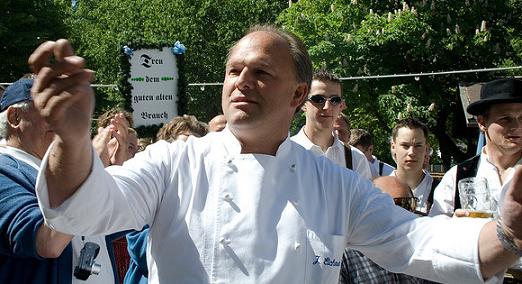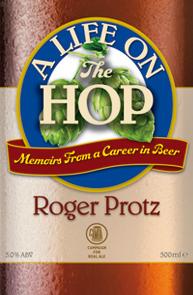Jordan posted an excellent taking up of the exploration of ideas around junkets last evening. Earlier in the day he and I had a very good exchange on the topic and I assured him that the point was that this was very much that – an exploration. It interests me because in my other areas of life, there is no question that accepting side b$enefits from those I am dealing with would be greatly challenging to say the least. But Jordan’s review captures many of the differences that may make the situation distinct. He concludes his piece with this:
I suspect that the fact that Alan’s blog post needled at me at 6:30 AM in an environment where most people would be content to listen to a light jazz soundtrack and punish the continental breakfast buffet speaks to the fact that I have an active moral compass when it comes to representing my activities as they relate to writing about beer. There is also the other fact, which some folks might not be willing to admit to. While I’m certainly compensated well for writing (be it books or newspaper columns), a trip like this would typically be beyond my financial means. Given the circumstance, if someone invites you to go to Boston, meet Jim Koch and eat a bunch of really good seafood while drinking a selection of beer on their dime, the response is predictable. As Spenser would say, “We’d be fools not to.”
Being the proud holder of a degree in English Lit before the LLB and LLM, I immediately assumed we were talking about the author of The Faerie Queene, itself an exploration of virtue – but I was unclear how that would attach to a beery jaunt in Massachusetts, to Winthrop’s very City upon the Hill. Then I thought it might be reference to the Victorian thinker Herbert Spencer who was, perhaps like Jordan, a utilitarian in matters such as these. But this Spenser’s ethics are a distasteful pre-Randian whackjob un-virtuous sort of utilitarianism, the sort that allows wikipedia to summarize his thoughts as including “anything that interfered with the ‘natural’ relationship of conduct and consequence was to be resisted and this included the use of the coercive power of the state to relieve poverty, to provide public education, or to require compulsory vaccination.” Screw you, too, Herb. Turns out Jordan was actually referring to the character Spenser in the novels of Robert B. Parker. This Spenser is also Bostonian so a junket there would make no sense. Not sure how his ethics play out but seeing as he is a detective one assumes they are somewhat reality-based.
Some years ago now, there were bloggy posts about the ethics of beer writing that went in circles before settling neatly on a high shelf where it sits well within reach, getting brushed off now and again. The Junket Registry is nothing more than the same ideas turned around, like looking at another side of an unsorted Rubik’s cube. I never gained the obsession that others did when it first came out so I don’t know how many paths it offers towards its own resolution. Within Spencers and Spensers alone the range of options is quite remarkable, too.




